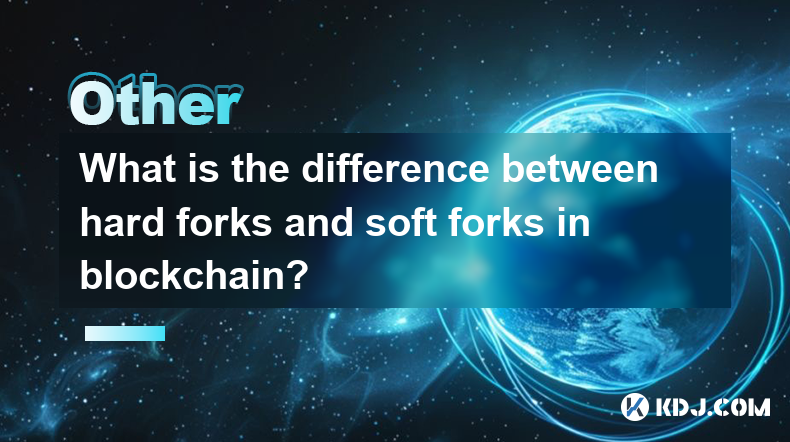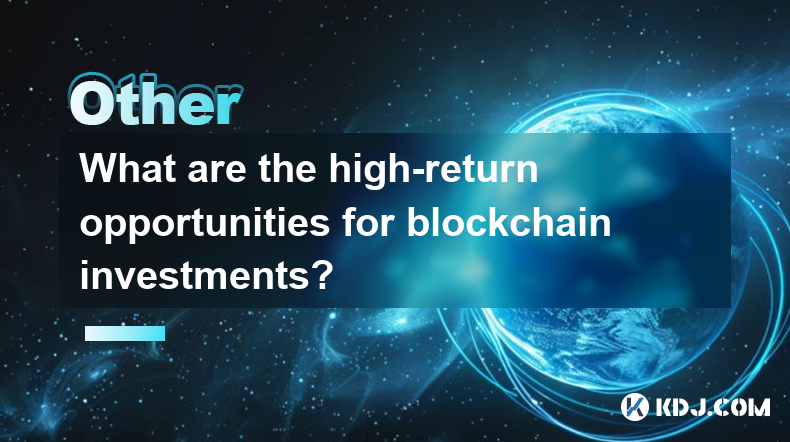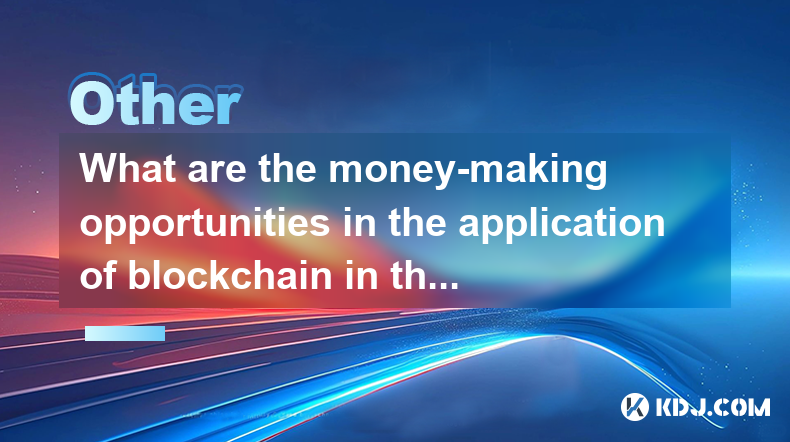-
 Bitcoin
Bitcoin $82,666.6102
-0.79% -
 Ethereum
Ethereum $1,784.7960
-1.02% -
 Tether USDt
Tether USDt $0.9996
0.02% -
 XRP
XRP $2.1257
-0.64% -
 BNB
BNB $592.3902
-0.42% -
 USDC
USDC $0.9999
0.02% -
 Solana
Solana $117.4685
-1.68% -
 Dogecoin
Dogecoin $0.1672
-1.55% -
 Cardano
Cardano $0.6486
-2.86% -
 TRON
TRON $0.2388
-0.62% -
 Chainlink
Chainlink $12.6264
-1.48% -
 UNUS SED LEO
UNUS SED LEO $8.9748
-4.45% -
 Toncoin
Toncoin $3.2369
-5.07% -
 Stellar
Stellar $0.2523
-3.16% -
 Avalanche
Avalanche $17.8476
-2.45% -
 Shiba Inu
Shiba Inu $0.0...01211
-1.64% -
 Sui
Sui $2.1892
-2.55% -
 Hedera
Hedera $0.1597
-3.77% -
 Litecoin
Litecoin $82.3531
-1.88% -
 Polkadot
Polkadot $3.9109
-4.55% -
 MANTRA
MANTRA $6.2589
-1.98% -
 Bitcoin Cash
Bitcoin Cash $297.7127
-1.02% -
 Dai
Dai $1.0001
0.04% -
 Bitget Token
Bitget Token $4.4351
-2.15% -
 Ethena USDe
Ethena USDe $0.9991
-0.03% -
 Pi
Pi $0.6450
21.59% -
 Monero
Monero $216.0365
0.55% -
 Hyperliquid
Hyperliquid $11.4792
-0.63% -
 Uniswap
Uniswap $5.8107
-0.91% -
 OKB
OKB $50.4811
4.99%
What is the difference between hard forks and soft forks in blockchain?
Hard forks create entirely new, incompatible blockchains requiring all node upgrades, potentially spawning new cryptocurrencies, unlike backward-compatible soft forks which allow older nodes to continue validating transactions.
Mar 19, 2025 at 08:36 am

Key Points:
- Hard Forks: Create entirely new blockchains, incompatible with the original. They require all nodes to upgrade.
- Soft Forks: Introduce changes compatible with the original blockchain. Older nodes can still validate transactions, but may not recognize new features.
- Purpose: Both are used to upgrade blockchain protocols, but they differ significantly in their implementation and impact.
- Impact: Hard forks can lead to the creation of new cryptocurrencies, while soft forks generally don't.
- Adoption: Hard forks require widespread adoption to be successful, while soft forks are easier to implement.
What is the difference between hard forks and soft forks in blockchain?
The terms "hard fork" and "soft fork" are frequently used in discussions surrounding blockchain technology, particularly in the context of cryptocurrency upgrades and protocol changes. Understanding the distinction between these two types of forks is crucial for navigating the complexities of the cryptocurrency landscape. The fundamental difference lies in their compatibility with the existing blockchain.
Hard Forks: A Complete Break
A hard fork is a permanent, irreversible change to the blockchain protocol that creates a new, independent blockchain. This means the new blockchain is incompatible with the old one. All nodes on the network must upgrade to the new protocol to participate in the new blockchain. Failure to upgrade results in the node being excluded from the new network, essentially becoming a node on the old chain. This often leads to the creation of a new cryptocurrency.
For example, Bitcoin Cash (BCH) is a result of a hard fork from the Bitcoin (BTC) blockchain. Users who chose to continue using the old Bitcoin protocol remained on the original Bitcoin blockchain, while those who adopted the changes moved to the Bitcoin Cash blockchain. This split created two separate cryptocurrencies, each with its own distinct history and characteristics. The significant change in protocol made them completely incompatible.
Soft Forks: Backward Compatibility
Unlike hard forks, soft forks introduce changes that are backward compatible with the original blockchain. This means that nodes running the old software can still validate transactions created under the new rules. However, they may not fully understand or recognize the new features introduced by the soft fork. Essentially, the old nodes can still operate and process transactions, even though they might not comprehend some of the updated features.
Consider a scenario where a soft fork is implemented to improve transaction efficiency. Older nodes will still process transactions, even if they don't utilize the new efficiency improvements. The new features are only fully utilized by nodes that have been upgraded. This backward compatibility minimizes disruption and encourages smoother adoption. This smoother transition is a key difference compared to the abrupt shift of a hard fork.
Key Differences Summarized
Here's a table summarizing the key differences between hard and soft forks:
| Feature | Hard Fork | Soft Fork |
|---|---|---|
| Compatibility | Incompatible with the original blockchain | Backward compatible with the original blockchain |
| Upgrade | All nodes must upgrade | Older nodes can still validate transactions |
| New Currency | Can create a new cryptocurrency | Generally does not create a new cryptocurrency |
| Implementation | More disruptive and complex | Less disruptive and easier to implement |
| Adoption | Requires widespread adoption | Easier to achieve widespread adoption |
Steps Involved in a Hard Fork:
- Proposal: A proposal for the changes is made and discussed within the community.
- Development: The new code is developed and tested.
- Activation: The new code is activated on the network at a pre-determined block height or time.
- Mining: Miners switch to mining the new blockchain.
- Adoption: Users and exchanges need to adopt the new blockchain.
Steps Involved in a Soft Fork:
- Proposal: A proposal for the changes is made and discussed within the community.
- Development: The new code is developed and tested.
- Activation: The new code is activated on the network.
- Adoption: Users gradually upgrade to the new software.
Illustrative Examples
The Segregated Witness (SegWit) upgrade for Bitcoin was a soft fork. It improved transaction scalability and security without creating a new cryptocurrency. Conversely, the creation of Bitcoin Cash from Bitcoin was a hard fork, resulting in two separate cryptocurrencies. These examples highlight the contrasting impacts of each type of fork. Understanding these differences is vital to comprehending the evolution of blockchain technologies.
Common Questions and Answers:
Q: Can a soft fork be reversed?
A: Yes, a soft fork can often be reversed, as it's backward compatible. Nodes can revert to the older version of the software without major issues.
Q: Can a hard fork be reversed?
A: No, a hard fork is irreversible. It creates a separate blockchain, making it impossible to merge the two back together.
Q: Which type of fork is more risky?
A: Hard forks are generally considered riskier, as they require a significant amount of coordination and adoption to be successful. Failure to achieve widespread adoption can lead to network fragmentation and instability.
Q: What are the benefits of hard forks?
A: Hard forks allow for significant protocol changes that are incompatible with the existing system. They can be necessary to fix critical bugs or implement major improvements that cannot be achieved through soft forks.
Q: What are the benefits of soft forks?
A: Soft forks are less disruptive and easier to implement, making them suitable for less significant changes and upgrades. Their backward compatibility ensures minimal disruption to the network.
Q: How do I know if a fork is a hard fork or a soft fork?
A: You need to examine the specific changes implemented in the upgrade. If the changes are backward compatible, it's a soft fork. If not, it's a hard fork. This often requires technical understanding of the underlying blockchain code. Community announcements and discussions usually clarify the nature of a fork.
Disclaimer:info@kdj.com
The information provided is not trading advice. kdj.com does not assume any responsibility for any investments made based on the information provided in this article. Cryptocurrencies are highly volatile and it is highly recommended that you invest with caution after thorough research!
If you believe that the content used on this website infringes your copyright, please contact us immediately (info@kdj.com) and we will delete it promptly.
- Aptos (APT) Spot ETF Application by Bitwise Asset Management Sparks Fresh Excitement in the Crypto Market
- 2025-04-06 00:20:12
- Bitcoin and Ethereum Prices End Q1 of 2025 in the Red
- 2025-04-06 00:20:12
- CryptoQuant Reveals the Growing Influence of “New Whales” in the Bitcoin Market
- 2025-04-06 00:15:12
- NoviqTech Tokenizes Recycled Amines on Hedera Network
- 2025-04-06 00:15:12
- FX Guys (FXG) Token, The Next 100x Altcoin
- 2025-04-06 00:10:12
- DePIN track leader Roam will participate as a primary sponsor in the 2025 Hong Kong Web3 Carnival
- 2025-04-06 00:10:12
Related knowledge

Is the ranking of Chinese blockchain apps real and reliable?
Apr 04,2025 at 09:01pm
The ranking of Chinese blockchain apps has become a topic of interest for many in the cryptocurrency community, as it provides insights into the popularity and adoption of blockchain technology within China. However, the reliability and authenticity of these rankings are often questioned. This article aims to delve into the factors that influence these ...

What are the future development trends of blockchain game development?
Apr 03,2025 at 05:00am
Blockchain technology has revolutionized various industries, and gaming is no exception. As we look to the future, several trends are set to shape the development of blockchain games. These trends not only promise to enhance the gaming experience but also to integrate blockchain technology more seamlessly into the gaming ecosystem. Let's explore these t...

What are the high-return opportunities for blockchain investments?
Apr 05,2025 at 02:35pm
Blockchain technology has revolutionized the financial world, offering numerous high-return investment opportunities. These opportunities span various sectors within the cryptocurrency ecosystem, including cryptocurrencies, decentralized finance (DeFi), non-fungible tokens (NFTs), and blockchain startups. Each of these areas presents unique risks and re...

What are the maintenance costs of blockchain system development?
Apr 03,2025 at 06:07pm
The maintenance costs of blockchain system development are multifaceted and depend on various factors. These costs can include technical maintenance, security updates, infrastructure expenses, and personnel costs. Understanding these elements is crucial for anyone planning to develop or maintain a blockchain system. Technical MaintenanceTechnical mainte...

What are the money-making models of blockchain games?
Apr 04,2025 at 02:00pm
Blockchain games have emerged as a revolutionary way for players to earn real money while enjoying their favorite pastime. These games leverage the power of blockchain technology to create unique money-making models that benefit both the players and the developers. In this article, we will explore the various money-making models of blockchain games and ...

What are the money-making opportunities in the application of blockchain in the field of Internet of Things?
Apr 05,2025 at 10:35pm
The integration of blockchain technology with the Internet of Things (IoT) presents numerous money-making opportunities. Blockchain, with its decentralized and secure nature, can revolutionize how IoT devices interact, manage data, and conduct transactions. This article will explore various avenues where entrepreneurs, developers, and investors can capi...

Is the ranking of Chinese blockchain apps real and reliable?
Apr 04,2025 at 09:01pm
The ranking of Chinese blockchain apps has become a topic of interest for many in the cryptocurrency community, as it provides insights into the popularity and adoption of blockchain technology within China. However, the reliability and authenticity of these rankings are often questioned. This article aims to delve into the factors that influence these ...

What are the future development trends of blockchain game development?
Apr 03,2025 at 05:00am
Blockchain technology has revolutionized various industries, and gaming is no exception. As we look to the future, several trends are set to shape the development of blockchain games. These trends not only promise to enhance the gaming experience but also to integrate blockchain technology more seamlessly into the gaming ecosystem. Let's explore these t...

What are the high-return opportunities for blockchain investments?
Apr 05,2025 at 02:35pm
Blockchain technology has revolutionized the financial world, offering numerous high-return investment opportunities. These opportunities span various sectors within the cryptocurrency ecosystem, including cryptocurrencies, decentralized finance (DeFi), non-fungible tokens (NFTs), and blockchain startups. Each of these areas presents unique risks and re...

What are the maintenance costs of blockchain system development?
Apr 03,2025 at 06:07pm
The maintenance costs of blockchain system development are multifaceted and depend on various factors. These costs can include technical maintenance, security updates, infrastructure expenses, and personnel costs. Understanding these elements is crucial for anyone planning to develop or maintain a blockchain system. Technical MaintenanceTechnical mainte...

What are the money-making models of blockchain games?
Apr 04,2025 at 02:00pm
Blockchain games have emerged as a revolutionary way for players to earn real money while enjoying their favorite pastime. These games leverage the power of blockchain technology to create unique money-making models that benefit both the players and the developers. In this article, we will explore the various money-making models of blockchain games and ...

What are the money-making opportunities in the application of blockchain in the field of Internet of Things?
Apr 05,2025 at 10:35pm
The integration of blockchain technology with the Internet of Things (IoT) presents numerous money-making opportunities. Blockchain, with its decentralized and secure nature, can revolutionize how IoT devices interact, manage data, and conduct transactions. This article will explore various avenues where entrepreneurs, developers, and investors can capi...
See all articles




















































































